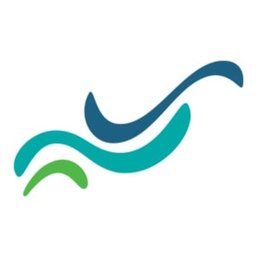Neuro Rehabilitation Facilitator - Relief
Reports to: Program Manager (as assigned)
Wage Rate: As per the Collective Agreement
Hours of Work: As per the Collective Agreement; may include days, evenings, weekends, and holidays. Must be available for the number of shifts and work the minimum number of shifts as outlined in the Collective Agreement.
Location: Various (program sites, client homes, community locations, head office)
Probationary Period: As per the Collective Agreement
Summary
The Neurorehabilitation Relief provides flexible and adaptable support and care to individuals with acquired brain injuries (ABI) across various programs, including seniors, assisted living, day services, psychosocial services, and supported independent living. This role focuses on implementing neurorehabilitation strategies and individualized service plans to maximize functional independence, promote community integration, and enhance the quality of life for clients. The Relief staff will provide direct support, facilitate participation in therapeutic activities, monitor client progress, and ensure a safe and supportive environment.
Responsibilities and Duties
- Provide specialized support and care to adults with acquired brain injuries, adapting neurorehabilitation strategies to address factors such as cognitive changes, physical limitations, and health conditions.
- Provide 24-hour support to clients in assisted living settings, promoting a safe, and home-like environment focused on rehabilitation and independence.
- Assist residents with all aspects of daily living, including personal care, medication administration, meal preparation, and household tasks, adhering to clinical best practices, client-centred care, and autonomy.
- Design and implement high-quality programs in multidisciplinary areas following agency domains and clients' rehabilitation goals.
- Lead inclusive, engaging sessions for individuals and groups of all sizes, with a focus on adaptability, meaningful participation, and program impact to promote the highest quality of life for clients.
- Facilitate peer groups and co-facilitate therapeutic groups (e.g., social skills training, anger management, coping strategies, support groups), providing clinically led interventions to meet the specific needs of individuals with acquired brain injury (ABI).
- Provide community-based support to individuals with acquired brain injury (ABI) living independently, focusing on promoting long-term rehabilitation and community integration.
- Implement individualized service plans (ISPs), group plans, and behaviour support plans under the direction of program managers and the clinical team, ensuring interventions align with best practices in brain injury neurorehabilitation.
- Monitor and document client progress, collecting data on functional status, cognitive abilities, emotional well-being, participation, skill acquisition, and goal attainment, reporting any changes or concerns promptly and comprehensively.
- Facilitate client participation in specialized therapeutic programs and activities (e.g., exercise, social engagement, art, music, culinary, educational, skill-building groups), adapting activities to meet individual needs and abilities.
- Provide emotional support, addressing issues of isolation, loss, and adjustment to disability, utilizing therapeutic communication skills to promote emotional well-being.
- Provide behavioural support to Long Term Care (LTC) home staff teams and provide education on ABI.
- Assist clients with activities of daily living (ADLs) and instrumental activities of daily living (IADLs) as needed, such as meals, personal care, mobility, nutrition, financial management, and household maintenance, while promoting maximum client independence and skill development.
- Administer medication per agency policy and procedures, adhering to medication administration guidelines, and documenting all medication-related activities.
- Provide support and training in life skills (e.g., budgeting, meal planning, household management), community integration, medication management, problem-solving, and decision-making.
- Collaborate with family members, caregivers, other health-care professionals, external service providers, and community resources to ensure coordinated and comprehensive care.
- Maintain accurate and up-to-date records in a timely manner, including daily logs, medication administration records, incident reports, progress notes, and data collection forms, in accordance with agency policies and procedures.
- Assist with the set-up and clean-up of program activities and materials, ensuring a safe, organized, and therapeutic environment.
- Assist clients with community outings and transportation, providing support and supervision while promoting community integration and generalization of skills.
- Provide crisis intervention and support as needed, utilizing de-escalation techniques and following established protocols to ensure client safety and well-being.
- Implement strategies for harm reduction and crisis intervention related to substance use and mental health symptoms.
- Assist clients in accessing and navigating health care, addiction services, and mental health resources as required.
- Other duties as assigned.
Core Competencies
- Client-Centred Neurorehabilitation: Demonstrate a commitment to understanding and meeting each client's unique neurorehabilitation needs and goals.
- Clinical Practice: Apply knowledge of acquired brain injury, neurorehabilitation principles, and evidence-based practices in client care.
- Communication: Communicate effectively and respectfully with clients, families, colleagues, and other stakeholders, using clear, concise, and professional language (both written and verbal).
- Teamwork and Collaboration: Collaborate effectively with interdisciplinary team members, including therapists, managers, professionals, caregivers/POAs, and other support staff, to ensure coordinated and holistic neurorehabilitation services.
- Data Collection and Documentation: Collect, record, and report accurate and timely data related to client and client group progress, interventions, and outcomes, in accordance with agency clinical standards and best practices.
- Program Implementation: Implement client programs and procedures with treatment fidelity, consistency, and attention to detail, adhering to established protocols and guidelines.
- Problem-Solving and Critical Thinking: Utilize sound clinical reasoning and problem-solving skills to address client challenges, adapt interventions, and promote positive outcomes.
- Adaptability and Flexibility: Adapt to changing client needs, program priorities, and work environments, demonstrating flexibility and resilience.
- Professionalism and Ethics: Maintain professional boundaries, demonstrate ethical conduct, adhere to confidentiality, and uphold the values of Mind Forward Brain Injury Services.
- Program Facilitation and Engagement: Demonstrated ability to lead individual and group sessions with confidence, energy, and adaptability. Skilled at creating an inclusive and engaging environment for diverse participants, whether one-on-one or in larger groups. Capable of planning, executing, refining, and promoting programs to maximize participation and impact.
Health and Safety
- Adhere to all health and safety policies and procedures, including infection control practices, to ensure a safe environment for clients and staff.
- Recognize and respond appropriately to health and safety risks, including client behaviours, environmental hazards, and emergencies.
- Participate in relevant health and safety training and maintain current certifications as required.
Training
- Provide direct care according to the individualized neurorehabilitation service plan, incorporating evidence-based interventions and clinical best practices.
- Participate actively in ongoing training and professional development activities to enhance clinical and technical skills and knowledge in brain injury neurorehabilitation.
- Maintain all mandatory certifications, including Safe Management, First Aid, CPR, and other program-specific requirements.
- Will be certified and annually retrained in Safe Management training.
Physical Demands
- The position may require lifting, transferring, and assisting clients with mobility, using proper body mechanics and approved safe lifting techniques, utilizing assistive aids devices as needed.
- The position requires standing, walking, bending, and other physical activities for extended periods.
- This position requires setting up and cleaning up groups and may involve tables, chairs, and other equipment.
- Must be able to meet the physical demands of the position.
Working Conditions
- Work is performed in various settings, including program sites, client homes, and community locations, which may present diverse environmental conditions.
- The work environment may involve exposure to challenging client behaviours, including physical aggression, complex medical needs, and sensitive situations requiring professionalism, the use of crisis intervention techniques, and clinically based judgment.
- May involve travel within the service area to provide community-based support and attend meetings.
- May involve redeployment between sites at any given time as directed by management.
Qualifications
- Diploma/degree in a related field (e.g., Gerontology, Social Service Worker, Recreation Therapy, Rehabilitation Support Worker, PT, OT, Kinesiology, Activation, Occupational Therapy, Physiotherapy, Neuroscience, Psychology, Health Sciences, Counselling, Mental Health, Addictions and Mental Health).
- Experience working with adults, particularly those with cognitive impairments or disabilities, is required.
- Experience working with individuals with acquired brain injury, disabilities, mental health challenges, or other complex needs, with a focus on rehabilitation or psychosocial rehabilitation, is required/preferred.
- Valid First Aid and CPR certification.
- Valid driver’s license and insured vehicle are required.
- Knowledge of aging, acquired brain injury, neurorehabilitation principles, its effects, and the impact of age-related changes on brain injury recovery and rehabilitation outcomes, including restorative, compensatory approaches, functional recovery, and compensatory strategies.
- Knowledge of psychosocial rehabilitation principles and practices, including assessment, intervention, and outcome evaluation.
- Knowledge of community resources and support services, including those specific to brain injury rehabilitation, psychosocial rehabilitation, and mental health.
- Strong interpersonal and communication skills, with the ability to communicate effectively with older adults and their families, demonstrating patience, empathy, cultural sensitivity, and the ability to establish rapport with clients, families, and team members.
- Patience, empathy, and a genuine interest, with a focus on promoting client dignity, independence, and quality of life.
- Ability to work independently and as part of a team, demonstrating flexibility, initiative, sound judgment, problem-solving skills, self-direction, organization, time-management skills, and a commitment to client-centred care.
- Ability to handle crises effectively, utilizing de-escalation techniques and following established protocols.
- Familiarity with Long Term Care environments and relevant legislation (e.g., Long-Term Care Homes Act, Ontario).
- Medication Administration training (preferred).
- Ability to design and implement diverse programs to promote holistic rehabilitation and encourage the highest quality of life for individuals with acquired brain injuries.
- Certification in Applied Suicide Intervention Skills Training (ASIST) is preferred.
- Demonstrated experience working with individuals who have co-existing diagnoses (e.g., brain injury, mental health and addiction).
- Knowledge of acquired brain injury, mental health disorders, substance use, harm reduction, recovery-oriented approaches, and trauma-informed care is essential.
- Experience in supporting clients in independent or supported living settings is preferred.
Job Type: Casual
Pay: $24.93-$28.73 per hour
Additional pay:
- Overtime pay
Benefits:
- On-site parking
Flexible language requirement:
- French not required
Schedule:
- 12 hour shift
- 8 hour shift
- Day shift
- Evening shift
- Monday to Friday
- Morning shift
- Night shift
- On call
- Weekends as needed
Application question(s):
- Do you have an open and flexible availability to be on call and work different schedules?
- This role requires frequent travel to various work sites located in the Peel and Halton region. Are you comfortable doing so?
- Do you have access to a vehicle?
Experience:
- relevant work: 1 year (preferred)
Location:
- Mississauga, ON (L5B) (preferred)
Willingness to travel:
- 75% (preferred)
Work Location: In person
Application deadline: 2025-06-14
Expected start date: 2025-06-23


